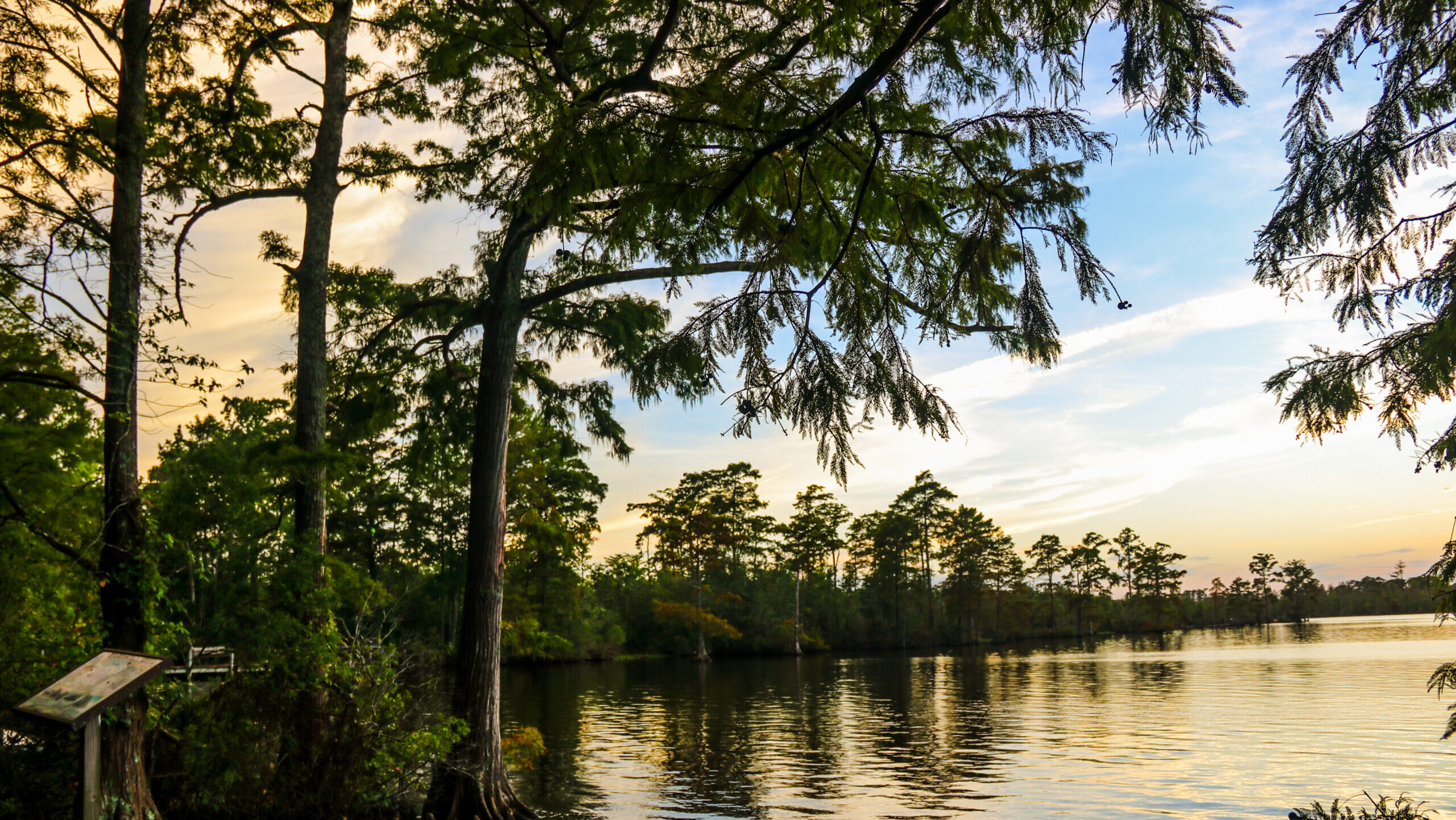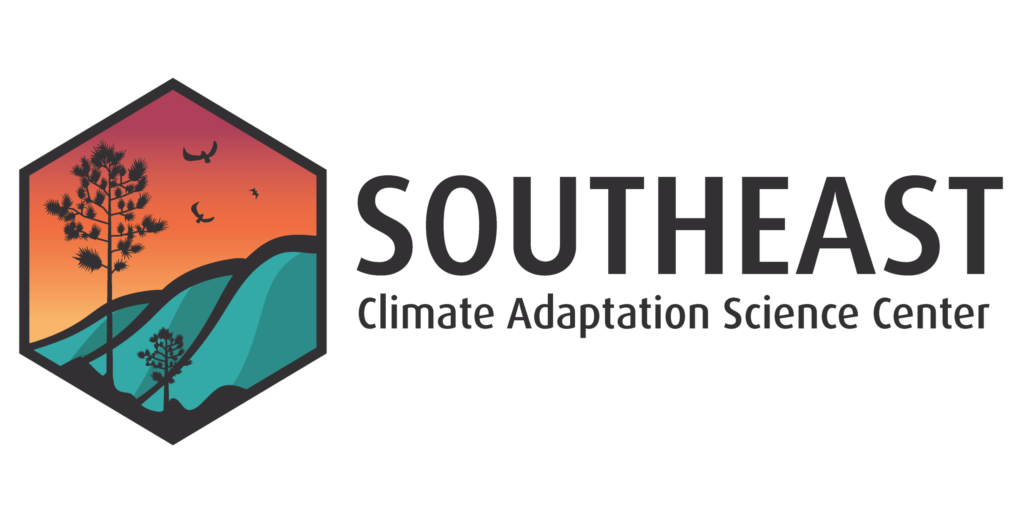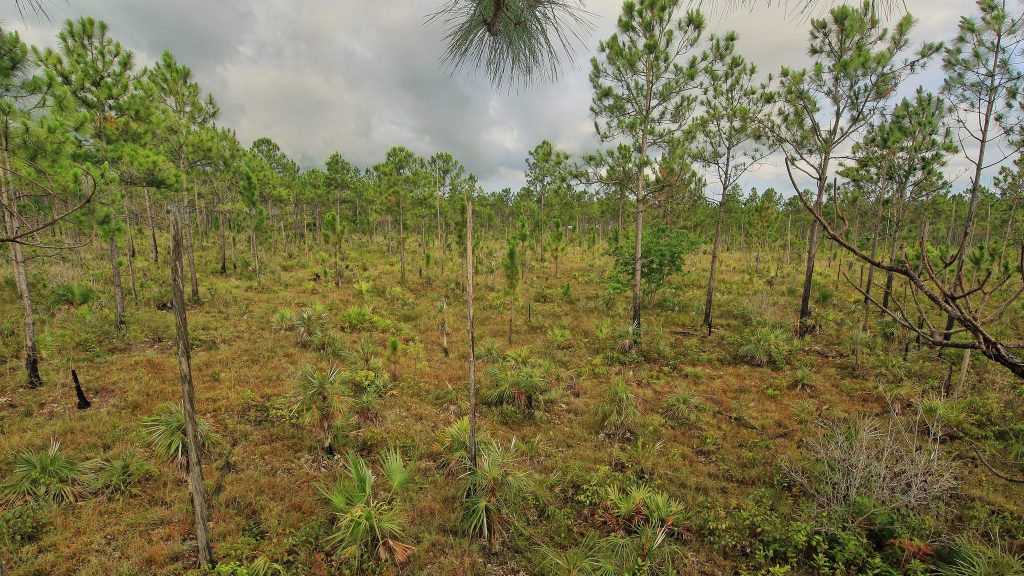October 2023 Newsletter


October 2023 Newsletter
Welcome to the Southeast Climate Adaptation Science Center’s October 2023 Newsletter.
For news and upcoming events related to the Southeast Climate Adaptation Science Center, subscribe to our monthly newsletter
SE CASC News | Resources | Publications | Tribal News | Partner News | Webinars | Events | Opportunities

Southeast Climate Adaptation Science Center News
Join us TODAY at 3:30 PM ET for a virtual Global Change Seminar, Translation of Science: From Research to Application and Adaptation, hosted by our Global Change Research Fellows. Learn more and register.
Mark your calendars for our November SE CASC Science Seminar, Climate Change Impacts on Brook Trout Populations in the Southeastern USA, by Project PI Yoichiro Kanno (CSU), November 29, 11AM ET. Learn more and register.
View a recording of our October SE CASC Science Seminar, Using Deficit Irrigation to Reduce Vulnerability in Food-Energy-Water Nexus, by 2020-21 Global Change Fellow Hemant Kumar (NCSU).
SE CASC Staff Updates: Cari Furiness is the Assistant Consortium Director and Michelle Jewell is our new Communications & Engagement Manager. Learn more.
2020-21 Global Change Fellow Kate Gorman is our new Climate Communications Specialist. Learn more about Kate.
Project PI Greg Cope and Joseph McIver co-authored Assessing the Toxicity of Sea Salt to Early Life Stages of Freshwater Mussels: Implications for Sea Level Rise in Coastal Rivers, product of SE CASC project, Impacts of Sea Level Rise and Associated Salinity Changes on At-risk Native Freshwater Mussels and Their Habitats in Atlantic Coastal Rivers. Read blog post here.
Project PI Jaime Collazo published two data releases from SE CASC project, Strategic Habitat Conservation and Adaptive Strategies for the Conservation of Coqui Frogs in Puerto Rico. Read blog post.
Research Ecologist Mitch Eaton is co-author to Scenario-Based Decision Analysis: Integrated Scenario Planning and Structured Decision Making for Resource Management under Climate Change. Read news release.
Climate Change and Wildlife Action Plan Fellow Hailey Shanovich is the recipient of the ESA PIE Kenneth and Barbara Starks Plant Resistance to Insects Graduate Student Award.
Assistant Tribal Climate Liaison Steph Courtney and Consortium PI Karen McNeal are co-authors to Seeing is believing: Climate change graph design and user judgments of credibility, usability, and risk. Read a press release.
2022-23 Global Change Fellow Murry Burgess was featured in a Science Friday article, Murry Burgess On Inclusive Field Safety.
2020-21 Global Change Fellow Kate Jones is co-author to Mapping South Florida Daily Fire Risk for Decision Support Using Fuel Type, Water Levels, and Burn History
Consortium PI Paul Armsworth is co-author to Multiplying the impact of conservation funding using spatial exchange rates.
Project PI Katie Warnell co-authored LinkedIn article, Pocosins: How These Unique Wetlands Can Help NC Combat Climate Change.
Conservation Corridor: Forest edge effects intensified by drought.
Project Spotlight
Developing Future Habitat Condition Scenarios for Wildlife in the Imperiled Pine Rockland Ecosystem of South Florida

A team of researchers led by PI Susan Walls and including Suresh Subedi at Arkansas Tech University, is helping the US Fish and Wildlife Service assess two rare species found in the imperiled rockland ecosystem of south Florida and the Florida Keys – the rim rock crowned snake and the Key ring-necked snake. The species’ habitat has shrunk to >3% of their historical range, due in part to salt water intrusion, sea-level rise, and human development. The project identified potential future changes in habitat resulting from different management actions and environmental conditions and explored potential impacts on the species. The information generated will be used by the US Fish and Wildlife Service to consider protection of these species under the Endangered Species Act, and could inform conservation, management, and recovery of other at-risk species in the imperiled rockland ecosystem. Learn more.
Resources
Climate Futures Toolbox. This R-code workflow helps access downscaled climate data supporting climate scenario planning activities. Learn more.
Name (Lake Sturgeon) in a Changing Climate. MW CASC & GLIFWC created this fact sheet sharing how climate change may affect Lake Sturgeon.
Climate Change Response Strategy was updated by NPS to organize goals around understanding, adapting, mitigating, and communicating about climate issues. Learn more.
ON FIRE: The Report of the Wildland Fire Mitigation and Management Commission. USDA created this report to offer recommendations for wildfire management. Learn more.
Preparing for Effective Risk Communication. NOAA developed this course to help develop a risk communications strategy. Learn more.
Procedures for Government-to-Government Consultation with Federally Recognized Indian Tribal Governments. This document was recently released by NOAA. Learn more.
In the Media
Pilot projects may prove vital in Currituck Sound restoration | Coastal Review
Work begins to raise barrier against salt water pushing up Mississippi, threatening water supplies | Nola.com
Venice may be put on the endangered list, thanks to human-created climate change | NPR
“This Is Not My Grandmother’s Summer”: Rural Populations Are Uniquely Vulnerable to the Health Impacts of Extreme Heat | Rural Health Information Hub
Extreme weather’s latest victim: The annual fun of fall foliage | Washington Post

Notable Publications
Pine savanna restoration on agricultural landscapes: The path back to native savanna ecosystem services
Restoring fire-dependent pine savannas results in many improvements to ecosystem services, such as increases in plant species riches and soil carbon. Restoration of pine savanna using frequent fire offers ecosystem services that increase the landscape’s overall resilience to climate change. Old growth savannas are characterized by their perennial C4 grasses, diverse herbaceous plant communities, dependence on fire, and little tree canopy. While these savannas offer a host of ecosystem services, their existence is declining due to agriculture, fire exclusion, and overgrazing. Native savannas that remain are unprotected or poorly managed. These findings can likely be applied to other savannas dominated by perennial vegetation and maintained with frequent fire. Link to article.
Storylines for unprecedented heatwaves based on ensemble boosting
The Pacific Northwest heat wave of 2021 was an unprecedented event that – this study argues – could have been foreseen. Record-breaking temperatures were recorded the following year all over the world, emphasizing the need for more accurate climate models for future climate incidences or disasters utilizing recent data. Storylines, or tales of potential future data, could be used to predict future heat waves that are unprecedented in current events. These storylines include statistical approaches and climate model-based approaches that can project these future events by picking apart the ingredients for the perfect heat wave, understanding the contributions to modern heat waves around the world, and then creating an ensemble boosting approach.These ensemble boosting storylines will be able to shed light on the unprecedented intensity of future climate disasters and increase the likelihood of resilience to these hazards. Link to article.
A good idea or just an idea: Which adaptation strategies for conservation are tested?
Current research on conservation adaptation strategies is a popular topic among scientists, but much of this work does not directly address how effective many of these strategies are in practice. A targeted literature search found very few experimentally tested strategies, and only one positively efficacy-assessing study overall. Evidence-based conservation strategies and adaptation recommendations are necessary for adequate biodiversity management in the conservation world, and the current state of the literature does not support this aim. In addition, assessments of adaptation efficacy are vital for creating climate change adaptation strategies, reinforcing the need for a more comprehensive understanding of conservation adaptation strategy efficacy. Link to article.
Pyrodiversity promotes pollinator diversity in a fire‐adapted landscape
The “pyrodiversity hypothesis” states that biodiversity increases with the increase of fire diversity via a positive effect on habitat heterogeneity in fire-managed landscapes. Pollinator diversity can benefit from fire heterogeneity in these landscapes, as this study found more diverse populations of bees and butterflies in the Red Hills of Florida, an area that experiences frequent fires. Bee and butterfly richness was well supported in this area when larger areas were burned, but a high frequency of burning throughout the landscape could actually be harmful to these populations, especially to butterflies. Natural fires are important for maintaining healthy and diverse plant populations in many fire-prone ecosystems, and this study shows that fire diversity may be an important tool for management. Link to article.
Critical stakeholder engagement: The road to actionable science is paved with scientists’ good intentions
Researchers can improve stakeholder perceptions by incorporating more intentional human dimensions research practices into their work. The Belmont principles of justice, beneficence, and respect for persons are important parts of stakeholder engagement, but are often lacking in research on actionable environmental solutions. There are many ethical concerns about neglecting the Belmont principles in human studies, and the results in the science indicate negative outcomes for stakeholders. Transparency, trustworthiness, and commitment to the stakeholders were common perceptions of CASC researchers that incorporated the Belmont principles into their work, but the researchers that did not prioritize these principles contributed to potential community harm. Highlighting issues of environmental justice and equity could help stakeholder perceptions and improve relationships for community benefit and the potential for future research. Link to article.

Tribal News
Visit USET Climate Change Headlines for updates on information regarding climate science events, funding opportunities, best practices, and highlights from across the USET region.
NOAA requests public comment on the draft designation documents for the proposed Chumash Heritage National Marine Sanctuary. Comment here until Oct. 25.
NDN is offering the Community Action Fund to help further Indigenous Peoples’ agendas relative to the defense, development, and decolonization. Learn more and submit your application by Oct. 31.
TCR and ITEP are offering opportunities to provide input for the 2023 Unmet Need Report on the unmet need of coastal Tribes in the lower 48 states affected by climate change, due Nov. 3.
DOT is offering funding for the 2023 Nationally Significant Federal Lands and Tribal Projects Program. Learn more and apply by Nov. 6.
USDA Forest Service opened the National FY24 Landscape Scale Restoration Request for Proposals for federally recognized Tribes and Alaska Native Corporations/Villages. Apply by Dec. 15.
Intertribal Timber Council in partnership with the USDA Forest Service Research and Development opened scholarship opportunities for Native American students. Learn more.

Regional Partner News
AFWA: 2022 AFWA Climate Adaptation Survey Report
Audubon NC: Native Plants Policy, Conservation Funding Increases Pass the Legislature
NFWF: National Coastal Resilience Fund Announces $44.7 Million to Support Projects Across the Nation
NIDIS Invests Approximately $2 Million to Build Tribal Drought Resilience
NOAA announced $12.7 million in funding to advance the Climate-Smart Communities Initiative
NOAA RESTORE awards $16.8 million to actionable research in the Gulf of Mexico

Webinars
Find more upcoming events in our calendar.
Oct. 24 | 12pm-2pm | USGS Science Vision for Native Freshwater Mussel Research
Oct. 24 | 12pm-1pm | Introduction to the Science for Nature and People Partnership (SNAPP)
Oct. 24 | 3:30pm-4:30pm | Global Change Seminar – Translation of Science: From Research to Application and Adaptation
Oct. 30 | 1pm-2pm | Yale Forest Forum: Climate-Smart Forestry in an Urban Context
Oct. 30 | 1pm-2:30pm | NOAA Career Workshop: USAJobs Application Process
Nov. 2 | 9am-10am | Climate & Conservation Coffee (virtual)
Nov. 3 | First Friday All Climate Change Talks
Nov. 6 | 12pm-1pm | Yale Forest Forum: Management of Novel Ecosystems and Ecosystem Change
Nov. 9 | 3pm-4pm | Sustainability and Community Vulnerability – Applications for the Wise Stewardship of Alabama’s Coastal Resources
Nov. 16 | 10am-11am | Third Thursday Web Forum
Upcoming Events
Nov. 6-9 | NAFWS Northeast Regional Conference | Millinocket, ME
Nov. 9, 4-5pm | Global Change Seminar: Exploring the Significance of Environmental Justice in Scientific Research | 101 DCL, NCSU campus & Virtual
Nov. 8-9 | Tribal Climate and Health Summit | Pala, CA
Dec. 11-15 | AGU Annual Meeting 2023 | San Francisco, CA & Virtual

Opportunities
Student Announcements
ESA-USGS are offering summer internships to outstanding field-trained undergraduates. Nominate students by Oct. 27. Learn more.
Bald Head Island Conservancy is accepting applications from graduate students for two one-year research fellowships in Barrier Island Science and Coastal Sustainability. Learn more and submit applications by Dec. 15.
NOAA Boulder is offering a 9 week Summer 2024 internship focusing on NOAA Boulder’s Indigenous Outreach. Learn more and apply by Jan. 16.
Hiring Announcements
Rocky Mountain Biological Laboratory has opened a postdoctoral research position on phenology of bees and flowers. Review of applications will begin on Oct. 20. Applications will continue to be accepted until position filled. Learn more.
NW CASC is hiring a postdoctoral ORISE Fellow to support the development of a next-generation version of CCVI. Learn more and apply by Oct. 27.
National CASC is hiring a Biologist/Physical Scientist as Research Coordinator for PI CASC. Learn more and apply by Dec. 1.
National Ocean Service is hiring a Program and Policy Analyst. Learn more and apply by Oct. 28.
Coastal Hazards Lab at NCSU is hiring a Research Associate. Learn more.
Georgia Sea Grant is hiring a Marine Educator and Public Program Coordinator. Learn more.
TNC is hiring an Applied Climate Scientist. Learn more.
Funding Announcements
NOAA CAP is offering Climate Adaptation Partnerships Funding opportunities in the Southeast and Upper Northeast. Letters of intent are due Oct. 30.
National Academies of Sciences, Engineering, and Medicine’s Gulf Research Program is offering funding in Understanding Risk Factors Contributing to Climate-Induced Mental Health Impacts. Learn more and submit proposals by Nov. 1.
NOAA is offering funding through FY24 NIDIS Tribal Drought Resilience to help tribal nations address drought and climate risk on tribal lands. Submit a letter of intent here by Nov. 2.
NFWF has opened the 2024 request for proposals for the Atlantic Flyway Shorebird Initiative 2024. Learn more and submit a proposal by Nov. 6.
NFWF is soliciting proposals to conserve and restore grasslands and wildlife species in the Southern Great Plains. Learn more and apply by Nov. 14.
Funding is available for the NOAA Transformational Habitat Restoration and Coastal Resilience grant. Learn more and apply by Nov. 17.
Miscellaneous
IPBES is seeking experts to develop multiple task forces relevant to global assessment of biodiversity and ecosystem services. Statements of interest are due Oct. 27. Learn more.
Community Science has opened a call for papers focused on equity in co-production. Learn more and submit manuscripts by Dec. 31.
ESA is hosting a petition to start a new Section on Climate Adaptation. Learn more and sign here with your ESA credentials.
The Undivided Project is seeking input to build a new tool to help emergency managers, climate scientists, policymakers, insurers, and others provide better support to communities. Take the survey here.
- Categories:
